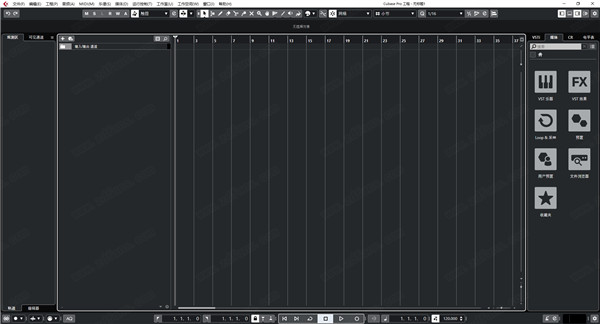
- #Cubase10 5 full version
- #Cubase10 5 mac os x
- #Cubase10 5 pro
- #Cubase10 5 software
FX Modulator: A multi-effect modulation plugin allowing extended sound-shaping by combining various modulation effects in an intuitive environment. Finetuned in cooperation with sound engineers and audio experts, this key feature allows you to apply modules directly to chosen channels. Channel strip: The core of Cubase’s impressive sound. Chord pads: Combine Chord pads with a MIDI controller for fast and creative composing. Here’s a brief overview of the Cubase features I find especially attractive: With 30+ years of constant improvements and innovations, Steinberg’s Cubase is packed with an exceptionally impressive set of tools and features focused on all areas of sound-shaping, including recording, editing, composing, and post-production mixing.ĭepending on the version of Cubase you buy, you’ll also get a range of industry-standard effects, sequencers, soundbanks, loops, MIDI tools, and video editing features. #Cubase10 5 mac os x
If you own a Mac computer, make sure that it comes at least with PowerMac G4 867 MHz processor (although G4 Dual 1,25 GHz is advised), Mac OS X 10.2.5 (or newer), and a Core audio compatible sound card. If you’re using a PC, you’ll need at least Pentium/Athlon 800 MHz (but Pentium/Athlon 1.4 GHz is recommended), Windows 2000/XP with an MME-compatible sound card, 4 GB RAM (8 GB RAM or more recommended), and 1024×768 (preferably 1152×864) display resolution. Technical RequirementsĬubase is not the most technically demanding DAW on the market, but its robustness and extensive set of features come with some expectable requirements.
#Cubase10 5 pro
If you’re a beginner in music production or you’re only learning to play the guitar and record, start with the streamlined Cubase Elements, and you’ll certainly feel confident in no time.Īs you later progress to the more advanced Artist or Pro versions, you will quickly expand your know-how, as the whole platform feels very homogenous, and its individual elements cooperate smoothly. The truth is that Steinberg puts lots of effort into making this program as intuitive and user-friendly as possible.
#Cubase10 5 software
Ease of UseĬubase is a relatively robust software often referred to as a professional-grade tool rather than a hobby program for at-home music enthusiasts (unlike simpler Reaper or Audacity). Note that all Cubase versions are available as digital downloads and boxed products.


#Cubase10 5 full version
Cubase Pro Competitive Crossgrade : Owners of competitive DAWs can crossgrade to the latest full version of Cubase Pro with this product at a special price. Cubase Pro: The most advanced Cubase version with Enhanced Logical Editors, 256 group channels, 256 physical I/Os, 64 VST instrument inputs, and >3,000 onboard sounds. Cubase Artist: Advanced version focused on composing, recording, mixing, and producing with 32 group channels, 32 physical I/Os, 32 VST slots, and >2,600 instrument sounds. Cubase Elements: Streamlined, easily accessible music production with 16 group channels, 24 I/Os, 3 VST instruments, and >1,000 included sounds. But would it suit you and your specific needs too? Let’s find out. This software is considered one of the most sophisticated workstations, providing tons of innovative features and almost unlimited creative options for those who want to compose, mix, or model their audio in a digital environment.Ĭubase is widely used by all sorts of music professionals – its famous users range from Hans Zimmer to DJ Tiesto. Now let’s examine Cubase and Studio One programs a bit closer: CubaseĬubase by Steinberg was first released back in 1989, so it’s one of the oldest still used DAWs on the market. Key Specifications of the Cubase vs Studio One Program Cubase is slightly more expensive, whereas Studio One is cheaper. Cubase offers crossgrade specials to owners of competitive DAWs, whereas Studio One does not. Cubase has an extensive library of sounds, whereas Studio One has a more limited soundbank. Cubase is more technically demanding, whereas Studio One works well with weaker hardware. Cubase takes a little longer to master, whereas Studio One is easier for total beginners. The main differences between Cubase vs Studio One are: Main Differences Between Cubase vs Studio One 

Let’s begin with a quick overview of the DAWs’ key differences.








 0 kommentar(er)
0 kommentar(er)
